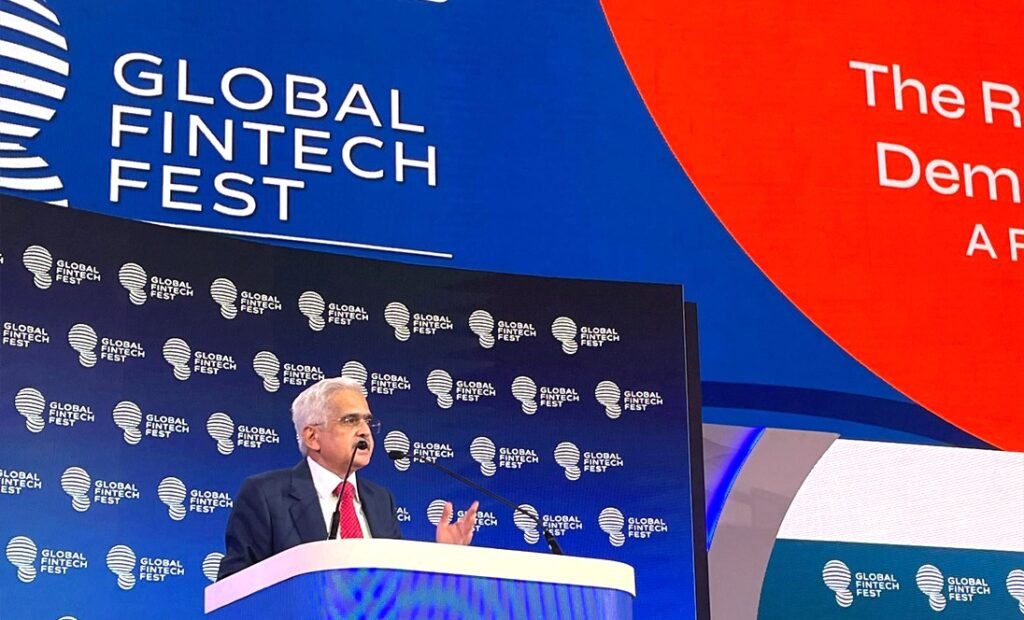“We are on the cusp of a major transformation in the fintech sector not only in India but many other countries as well.”
This was the crux of Reserve Bank of India (RBI) Governor Shaktikanta Das’s keynote address at Global Fintech Festival. He highlighted that with Fintech, the landscape of traditional financial services has undergone a profound change. “This transformation has significantly impacted delivery of financial services by making them faster, cheaper, efficient and more accessible,” Das said.
DPIs: A public good
The RBI Governor lauded the Indian model of digitisation through the creation of digital public infrastructure (DPIs) that promotes interoperability, openness and inclusion to deliver services to people. While the Government has taken lead in DPIs, the private sector has built upon it through innovative products.
Unified Payment Interface (UPI) as a DPI has played a phenomenal role in India’s fintech revolution in the short span of seven years since its launch. The ability to instantly transfer money in a secure manner has made it a success story globally. Das said, “It has facilitated digital payments for small businesses and street vendors, leading to greater financial inclusion. UPI has also spurred innovation in the FinTech space, leading to the growth and development of other payment systems.”
Role of RBI in fostering innovation in FinTech
Enumerating the institutional arrangements undertaken by RBI to fuel innovation in fintech, Das said that they have promoted stability, transparency, and fair practices in the financial sector. RBI has taken a lead through institution building with the setting up of Institute for Development and Research in Banking Technology (IDRBT), NPCI, Indian Financial Technology & Allied Service (IFTAS), Reserve Bank Information Technology Pvt. Ltd. (ReBIT), Reserve Bank Innovation Hub and setting up of the Department of Fintech in RBI.
The setting up of these institutions along with appropriate policy initiatives play a crucial role in shaping the development of the sector. Through the various policies, RBI aims to promote a conducive environment for innovation and also ensure the security and stability of financial services.
Some of the recent initiatives taken by RBI to transform the sector include launch of Central Bank Digital Currency (CBDC) in 2022 and Public Tech Platform for frictionless credit under which a pilot for digitisation of Kisan Credit Card or KCC loans has been introduced.
Making India’s FinTech sector stable and future-ready
The RBI Governor touched upon three critical issues to make the fintech sector more robust – customer centricity, governance, and self regulation. Understanding the needs of the customer by protecting their interests and safeguarding their trust is important in the dynamic world of fintech evolution. “Designing solutions that safely and efficiently meet customer needs would not only elicit trust of customers, it would also meet business objectives in a sustainable manner. This can be achieved through simplified user interfaces and quick customer grievance redress mechanisms,” Das said.
Good governance is a key for long-term success and durability of fintechs. Das said, “A robust governance structure encompasses clear delineation of roles and responsibilities, transparent decision-making processes, accountability mechanisms, and stakeholder engagement. Good governance must focus on ensuring effective oversight, ethical conduct and risk management.”
The RBI Governor also urged fintechs to establish a Self-Regulatory Organisations (SRO). In recent times, the apex bank has been cracking down on fintechs for governance issues. “Technological innovation has unprecedented potential to make finance more inclusive, competitive and robust. It is crucial that technological advancements in the world of FinTech evolve in a responsible manner and are truly beneficial to the people at large,” Das said.
